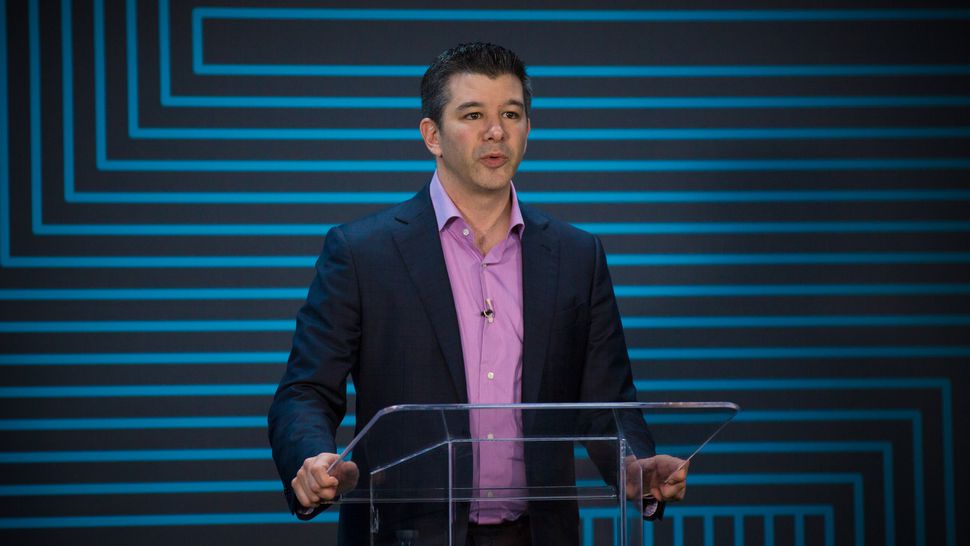Uber CEO quits Trump's business group


Image: CNET
The CEO of ride-booking service Uber has succumbed to mounting pressure from activists who oppose the administration's immigration policies, including Uber drivers, many of whom are immigrants themselves.
The trouble for Uber began last weekend when the company drew criticism for continuing to service John F Kennedy airport in the midst of an hour-long taxi union strike to protest Trump's executive order on immigration.
In response, users began to quit Uber, with the #deleteUber hashtag becoming a timeline of people informing the company that they would delete their accounts. Many said they would no longer use the service and accused the company of being scab labour.
In an effort to hose down the social media storm, the company, which is known to operate outside the law when it suits it, said it would pay any of its drivers affected by Trump's immigration ban for three months, and then highlighted its ties to the Trump administration.
"That means this ban will impact many innocent people -- an issue that I will raise this coming Friday when I go to Washington for President Trump's first business advisory group meeting," Uber CEO and co-founder Travis Kalanick said on January 28.
"We partner around the world optimistically in the belief that by speaking up and engaging we can make a difference. Our experience is that not doing so shortchanges cities and the people who live in them.
"This is why I agreed in early December to join President Trump's economic advisory group, along with Elon Musk (CEO of Tesla), Mary Barra (chairwoman/CEO of General Motors), Indra Nooyi (chairwoman/CEO of Pepsi), Ginni Rometty (chairwoman/CEO of IBM), Bob Iger (chairman/CEO of Disney), Jack Welch (former chairman of GE), and a dozen other business leaders.
"I understand that many people internally and externally may not agree with that decision, and that's OK. It's the magic of living in America that people are free to disagree. But whatever your view, please know that I've always believed in principled confrontation and just change; and have never shied away (maybe to my detriment) from fighting for what's right."
By the end of the week, though, Kalanick was backtracking and removed himself from the Trump administration's advisory panel, saying his presence was "misinterpreted".
"Joining the group was not meant to be an endorsement of the president or his agenda but unfortunately it has been misinterpreted to be exactly that," Kalanick, who had planned to attend a meeting of the group on Friday, said in an email.
Kalanick said he spoke briefly to Trump about the immigration order "and its issues for our community", and told the president he would not join the economic council.
"There are many ways we will continue to advocate for just change on immigration, but staying on the council was going to get in the way of that," he wrote in a note to employees.
"The executive order is hurting many people in communities all across America. Families are being separated, people are stranded overseas, and there's a growing fear the US is no longer a place that welcomes immigrants."
The move could put pressure on other CEOs expected to attend a meeting with Trump on Friday.
In recent days, employees of Google and Comcast have walked out in protest of Trump's executive order.
A number of leaders of open-source companies have also expressed their disapproval of the ban.
Earlier this week, the United States formally pulled out of the Trans-Pacific Partnership (TPP), fulfilling a campaign pledge to return jobs to American shores under the auspices of an "America first" mantra.
"The president understands how critical it is to put American workers and businesses first when it comes to trade. With tough and fair agreements, international trade can be used to grow our economy ... this strategy starts by withdrawing from the Trans-Pacific Partnership and making certain that any new trade deals are in the interests of American workers," the White House said in a statement last week.
Alongside the TPP, the new administration has said it will also renegotiate the North American Free Trade Agreement (NAFTA), and has threatened to withdraw from the trilateral agreement with Mexico and Canada if American workers are not given a "fair deal".
Among the other signatories to the trade deal, some nations are looking to push ahead and legislate its terms despite the withdrawal of the nation making up 60 percent of the GDP covered by the agreement, while other countries are walking away or looking to alternative bilateral deals.
With AAP